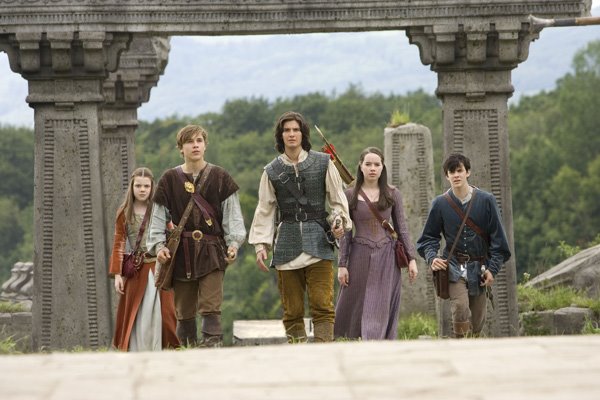This article is culturally conditioned, about the value of education even when there's this huge war going on. At the same time, it has universal truths applicable to all time periods. During the war, C.S. Lewis first questioned whether education during war-time was "like fiddling while Rome burns."
Lewis then asked a very thought-provoking question, "We can see that every Christian who comes to a university must at all times face a question compared with which the questions raised by the war are relatively unimportant. He must ask himself how it is right,
or even psychologically possible, for creatures who are every moment advancing either to heaven or to hell, to spend any fraction of the little time allowed them in this world on such comparative trivialities as literature or art, mathematics or biology. If human culture can stand up to that, it can stand up to anything." In another spot, he wrote that we always must answer, "How can you be so frivolous and selfish as to think about anything but the salvation of human souls/ but the war?" Sometimes I wonder that myself, and in the last blog, I stated that one of my churches encouraged people to live with an eternal perspective, focusing on saving souls and the Bible. This church would value college education, but primarily for students to be missionaries to other college students. I don't know what I think about all that, but Lewis' insights were fascinating to me!
I love C.S. Lewis' answer, "The war creates no absolutely new situation: it simply aggravates the permanent humansituation so that we can no longer ignore it... If men had postponed the search for knowledge and beauty until they were secure the search would never have begun." Very true. Lewis went on to say that "it is clear that Christianity does not exclude any of the ordinary human activities," quoting Paul's command for people "to get on with their jobs." Then, continuing on, "All of our merely natural activities will be accepted, if they are offered to God, even the jumblest: and all of them, even the noblest, will be sinful if they are not." Lewis said that education "is not the only road to God, nor the safest, but we find it to be a rouad, and it may be the appointed road for us." At the same time, Lewis cautioned about the harms of intellect to pursue one's own glory rather than God's.
Another interesting point he brought up is, "If all the world were Christian, it might not matter if all the world were uneducated... Good philosophy must exist, if for no other reason, because bad philosophy needs to be answered." That's an interesting point because as Christians were are called to live IN the world but not OF the world. I think Christians who retreat from society are not obeying the "cultural mandate," as Plantinga might stay. The Bible is eternal truth, but it also is embedded in the culture of the time. Today, our intellectual philosophies cannot be avoided by Christians. We, as Christians, should be right inside the culture, reforming it from within, and that includes academics.
Lewis then talked about how students could counter arguments that they should be concentrating solely on the war. He warned, "Do not let your nerves and emotions lead you into thinking your present predicament more abnormal than it really is." Lewis wrote about three "enemies" that war raises against the scholar:
1. Excitement- the tendency to think and feel about the war when we had intended to think about our work (counter: the war has only aggravated an old enemy)
2. Frustration- the feeling that we shall not have time to finish (counter: we should leave futurity in God's hands)
3. Fear- war threatens with death and pain (counter: maybe we should be aware of our mortality).
In conlcusion, Lewis said, "But if we thought that for soe souls, and at soe times, the life of learning, humbly offered to God, was, in its own sall way, one of the appointed approaches to the Divine reality and the Divine beauty which we hope to enjoy hereafter, we can think so still." In other words, he believed learning during war-time was legitimate (although it would have been really funny if he had gone the other way, him being a professor and all...). Overall, I liked Lewis' points here, especially about the value of Christians being educated.
Subscribe to:
Post Comments (Atom)

No comments:
Post a Comment